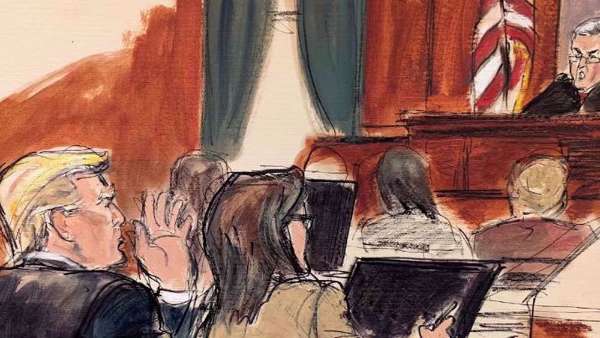
Tenantsí rights advocate protest in front of Edward Brook Courthouse in Boston, January 13, 2021. (Photo by AP)
A federal moratorium protecting millions of renters from eviction in the United States is set to expire Saturday night, after the House of Representatives left town for a six-week recess without passing an extension.
The moratorium was initially enacted as a public health measure by the Centers for Disease Control and Prevention (CDC) eleven months ago. It was established to prevent the spread of the coronavirus by banning the eviction of renters who could not pay their rents.
Democratic leaders in the House scrambled throughout the day Friday to garner enough votes to extend the CDC order beyond the July 31 deadline. But Republicans rejected a bill that House Majority Leader Steny Hoyer was trying to pass and the lower chamber finally adjourned for the August recess.
Prior to the vote, progressive Reps. Alexandria Ocasio-Cortez of New York and Cori Bush of Missouri stood outside Pelosiís office and demanded that Congress stay in session until an extension is passed.
"Everybody knew this was coming. We were sounding the alarm about this issue," Ocasio-Cortez said.
Last month, the Supreme Court allowed the eviction moratorium to stay in place until July 31 but left Congress in charge of passing an extension beyond that date.
President Joe Biden urged Congress on Thursday to extend the measure to December 31. But the White House announced later that the administration was willing to permit the moratorium to expire, arguing that its hands were tied.
"Given the recent spread of the Delta variant, including among those Americans both most likely to face evictions and lacking vaccinations, President Biden would have strongly supported a decision by the CDC to further extend this eviction moratorium to protect renters at this moment of heightened vulnerability," the White House said in a statement.
"Unfortunately, the Supreme Court has made clear that this option is no longer available."
House Speaker Nancy Pelosi said at a news conference earlier on Friday that it should be the CDC to extend the eviction ban and use the money that had previously been allocated to this issue.
"We would like the CDC to expand the moratorium, thatís where it can be done," the top Democrat said.
CDC Director Rochelle Walensky had already made it clear last month that the July extension would be the final one.
Following the defeat of the moratorium in the House, Pelosi blamed the failure on the last-minute notice from the White House that Congress had to fix the problem through the legislative process.
Housing advocates are concerned that delays in federal rental assistance mean tenants will suddenly owe months of rents they cannot afford to pay. States with weaker renter protections, they warn, could be looking at an "avalanche" of evictions after the moratorium expires Saturday night.
The CDC moratorium was far from perfect. Many renters were not aware of their rights or were entirely bereft of any protections because states and local governments implemented the federal program differently. Many landlords have already filed eviction cases with the courts.
Data from the Census Pulse survey indicate that more than 10 million tenants are behind on rent, and only a small fraction of the emergency rental assistance allocated by Congress has made it to tenants and landlords so far.
Despite the shortcomings, the CDC moratorium has been the best bulwark against eviction for millions of American renters, who could otherwise be made homeless at a time when COVID cases are once again rising across the country.
LINK: https://www.ansarpress.com/english/23290
TAGS:






























 NY attorney general fires back at Trumpís defense of financial statements
NY attorney general fires back at Trumpís defense of financial statements 




